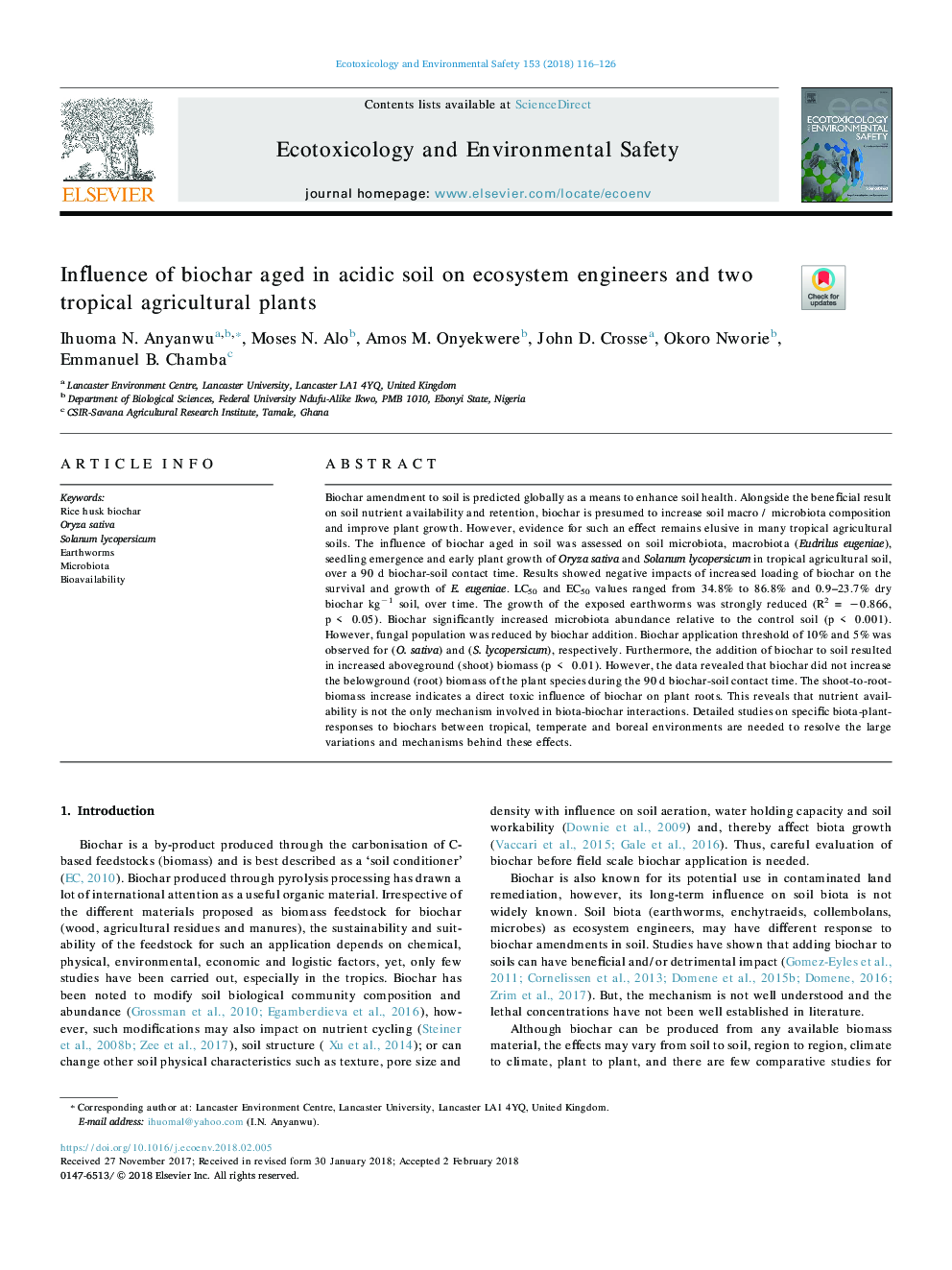| Article ID | Journal | Published Year | Pages | File Type |
|---|---|---|---|---|
| 8854185 | Ecotoxicology and Environmental Safety | 2018 | 11 Pages |
Abstract
Biochar amendment to soil is predicted globally as a means to enhance soil health. Alongside the beneficial result on soil nutrient availability and retention, biochar is presumed to increase soil macro / microbiota composition and improve plant growth. However, evidence for such an effect remains elusive in many tropical agricultural soils. The influence of biochar aged in soil was assessed on soil microbiota, macrobiota (Eudrilus eugeniae), seedling emergence and early plant growth of Oryza sativa and Solanum lycopersicum in tropical agricultural soil, over a 90 d biochar-soil contact time. Results showed negative impacts of increased loading of biochar on the survival and growth of E. eugeniae. LC50 and EC50 values ranged from 34.8% to 86.8% and 0.9-23.7% dry biochar kgâ1 soil, over time. The growth of the exposed earthworms was strongly reduced (R2 =â¯â0.866, pâ¯<â¯0.05). Biochar significantly increased microbiota abundance relative to the control soil (pâ¯<â¯0.001). However, fungal population was reduced by biochar addition. Biochar application threshold of 10% and 5% was observed for (O. sativa) and (S. lycopersicum), respectively. Furthermore, the addition of biochar to soil resulted in increased aboveground (shoot) biomass (pâ¯<â¯0.01). However, the data revealed that biochar did not increase the belowground (root) biomass of the plant species during the 90 d biochar-soil contact time. The shoot-to-root-biomass increase indicates a direct toxic influence of biochar on plant roots. This reveals that nutrient availability is not the only mechanism involved in biota-biochar interactions. Detailed studies on specific biota-plant-responses to biochars between tropical, temperate and boreal environments are needed to resolve the large variations and mechanisms behind these effects.
Related Topics
Life Sciences
Environmental Science
Environmental Chemistry
Authors
Ihuoma N. Anyanwu, Moses N. Alo, Amos M. Onyekwere, John D. Crosse, Okoro Nworie, Emmanuel B. Chamba,
